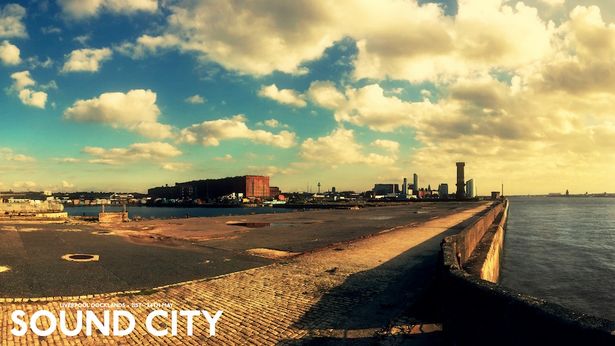Chinese music giant-in-training Modern Sky Entertainment made a curious investment last week: a significant strategic stake in the Liverpool Sound City music festival and conference.

Modern Sky has had a monster year. They recently completed two rounds of Series A and B financing, took their flagship Strawberry Music Festival to over 12 Chinese cities, built their own music venue in Beijing (Modernsky Lab, with more planned), and took the shining lights in their music label roster to New York, Helsinki and Seattle for Modern Sky-branded showcase festivals.
These moves are mostly easy to parse – founder Shen Lihui often mentions his goal of ‘vertical integration’, with Modern Sky having a presence in every link of the Chinese music industry chain. Hence their efforts to build their own mobile ticketing platform (Pogo Live), dabble with live-streaming (“正在现场” or Zhengzai.tv) or establish podcast networks and online radio channels.
At the moment, the music industry in China (Modern Sky included) appears to be in a bullish frame of mind. There’s plenty of money floating around, and investments appear to be throwing ideas at a wall in an effort to find out what will stick. Experimentation is the name of the game right now, not financial pragmatism.
But even then, Modern Sky’s latest move is baffling.
Liverpool Sound City is a fairly well-established music festival brand in the UK, sure, but what possible strategic interest could it have for a Chinese music company?
Liverpool Sound City started as a disaggregated urban festival centered on Liverpool’s Wolstenholme Square, and quietly built a reputation for its diverse lineup full of quirky programming choices and left-field headlining artists.
Last year, though, it decided to uproot itself from the city centre, and move out to a large open space near the Bramley Moore Docks, well outside city limits. A venue one reviewer uncharitably described as “a giant slab of concrete in the middle of nowhere.”
The quirky programming, while still evident, was largely sidelined in favour of attention-grabbing headliners and “big” sounds. A sign that it’s perhaps preparing to move into the Premier League of outdoor festivals.
So there’s two questions here about Modern Sky’s investment:
- Is this a strategic stake in what the company sees as a viable, “rising” festival brand?
This is quite unlikely, as the fastest-growing festivals are probably in Asia and not in Europe, where the competition (and calendar) is extremely crowded.
But it’s possible that Modern Sky seems something in Liverpool Sound City’s transformation from local indie mainstay to big-ticket event. Festivals are not usually viable financial concerns, often wobbling on the uneasy fence between fortune and bankruptcy.
The economics of music festivals are complicated, but their sustainable success boils down to how well you monetize people on site (easier in an abandoned dock than in the city centre) and how well you differentiate from competitive offerings. Sound City appears to be poised to tackle both issues…which leads to question two.
- Is this just low-hanging offshoring fruit, or a genuine viable business proposition?
Colour us cynical, but a far more possible answer to why Liverpool Sound City could be as simple as “offshoring”. A plausible, low-hanging investment opportunity to take their money out of the country that also serves as an adequate showcase of Modern Sky’s international clout and influence. A “gateway investment”, if you will, that brings access and networks.
In the press release announcing the investment, Lihui says it’s “only the beginning,” and that Sound City has “a lot to teach [Modern Sky].” Let’s hope they’re fast learners.

